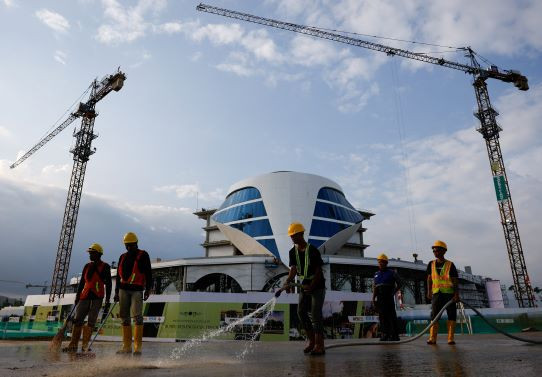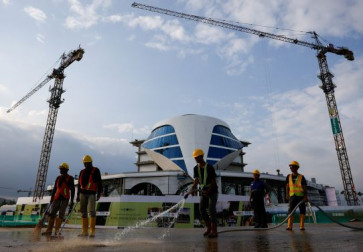Popular Reads
Top Results
Can't find what you're looking for?
View all search resultsPopular Reads
Top Results
Can't find what you're looking for?
View all search resultsIndonesian sovereign wealth fund should be politically independent
Building infrastructure, however, is costly and risky as it requires huge capital and might be unprofitable.
Change text size
Gift Premium Articles
to Anyone
T
he government established the Indonesian sovereign wealth fund (SWF)—popularly known as the Indonesia Investment Authority (INA) in 2021. This is part of a rising trend of SWFs both regionally and globally.
Regionally, in maritime Southeast Asia, such a rise is fundamentally underpinned by the need to attract foreign capital and close funding gaps to develop critical projects such as infrastructure. Besides the INA, the Philippines government in 2023 established the Maharlika Investment Fund for a similar purpose.
Such a purpose, however, is driven by a business model that differs from that of more established SWFs such as the world’s largest—Norway Government Pension Fund Global, which is worth US$1.7 trillion—and the world’s first—Kuwait Investment Authority, worth $980 billion. Owing to rich oil reserves, they were established to manage revenue surpluses as a buffer during economic downturns by diversifying the countries’ portfolios.
Indonesia is also rich in oil reserves. Unlike Norway and Gulf countries such as Kuwait, however, manufacturing rather than crude oil production is the country’s major source of revenue. Indonesia has been a net importer of crude oil since 2004. After suspending its membership from the Organization of the Petroleum Exporting Countries (OPEC) in 2009, the country rejoined in 2016 before deciding to suspend it again in less than a year, due to a policy disagreement with OPEC’s production cuts.
While it might have vast, untapped reserves across the archipelago, the Energy and Mineral Resources Ministry has anticipated that the country will run out of its reserves by 2030. With waning oil production and net imports, an oil fund is simply not an option for Indonesia—at least not today.
When the government decided to establish the INA, the country was undergoing rapid infrastructure development. Why was it necessary? Because infrastructure is key for growth. It creates opportunities such as connectivity and jobs.
Such opportunities inspire hope for a better livelihood. Essentially, they are fundamental human rights in any just and prosperous society. In Indonesia, they are enshrined in the 1945 Constitution.



















